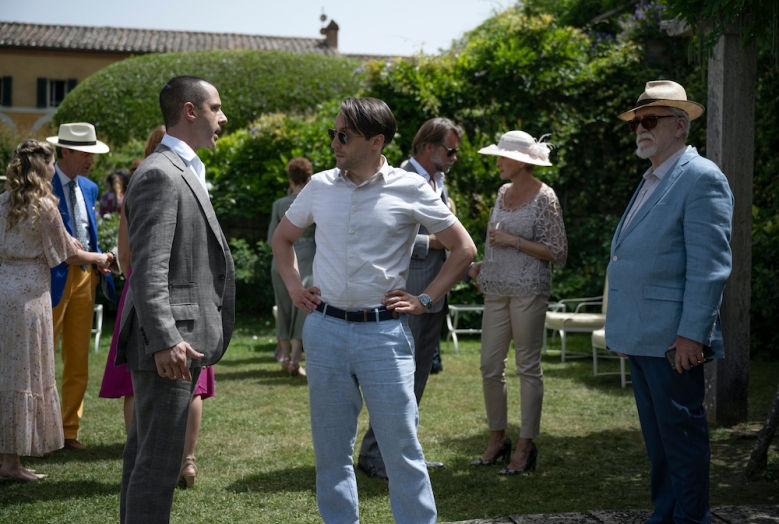Succession is a one-trick pony with diminishing returns
Written by Ian Thomas Malone, Posted in Blog
Succession is, in theory at least, a fairly easy show to describe. The Roys, namely Kendall (Jeremy Strong), Shiv (Sarah Snook), and Roman (Kieran Culkin), vie for their father’s attention, hoping to inherit an unwieldy corporation leviathan that’s ill-served by a steady injection of nepotism. Armed with a steady stream of one-liners, what can sound like corporate Game of Thrones often feels more like an episode of Curb Your Enthusiasm, loosely connected vignettes in purpose to a broader arc.
Season three positioned itself to tackle the ramifications of Kendall going rogue, prompting Justice Department investigations too broad for Logan (Brian Cox) to squash. Tom (Matthew McFayden) spent several episodes accepting his inevitable indictment, reading about prisons like he was planning a family vacation. Cousin Greg (Nicholas Braun) found himself in the middle of a game of tug-of-war between Kendall and the broader Roy family, becoming disinherited in the process.
Succession understands the power of dramatic tension, often deploying orchestral scorings of its theme song to heighten its more powerful moments. Scenes like when the FBI raided Waystar Royco made for great TV, not only in their initial execution but through the anticipation of what might happen next week. In a world where many TV shows see their entire seasons released in one day, Succession seemed to understand the value of the slow burn.
Season three cares only for its mic drop moments. Succession has no grasp of narrative pacing, a show that gives its audience little to invest in beyond amusing one-liners with diminishing returns. A sad waste of talent. The build-up doesn’t have any follow-through.
The first few episodes expose a few of the cracks. Confined almost exclusively to indoor closed sets, a likely product of the pandemic, the Roy family was left to bicker amongst themselves without the beauty that comes from their perpetual globetrotting. Instead, the audience is left with some atrocious writing that gave corporate power struggles the feel of a high school drama.
To some extent, the pettiness is part of the show’s charm. There’s a certain degree of satisfaction to be had in watching Shiv flounder in her executive position, all the empty calories of girlboss feminism. Succession doesn’t really need likable characters, but season three hasn’t given the cast enough to work with to fill the void.
There’s a bizarre amount of disconnect between each episode, introducing and abandoning new storylines, seemingly at whim. Of course, the only narrative that really matters, in the end, lies with Logan and his children. Succession knows its best magic comes from Logan sparring with his kids, revealing what an unbelievably bad father he was at every turn. You don’t need to feel an ounce of sympathy for the Roy kids to see the beauty in these heartbreaking scenes, puppies chasing a car they’ll never catch.
Succession is capable of crafting individual compelling episodes of television, but season three exposed some of the series’ broader structural flaws. There is little more to the whole production than a bunch of unsympathetic blowhards perpetually trying to stab each other in the back. The vignette approach to episodic storytelling occasionally works, but it’s hard to feel impressed by a show that spent its first episodes hyping up an existential threat that it instead decided to abandon with the flick of a finger.
Succession has no stakes. It’s hard to build tension when you know the show will do everything in its power to preserve the status quo. The audience may understand why it can’t deliver on “succession” until closer to a finale, but the show doesn’t seem to care much about progression either.
The result is a glorified sitcom. Succession gives the audience plenty to smile or cringe at, whether it’s through Greg’s antics or the sad existence that is Connor Roy (Alan Ruck). It’s all too lazy to be great TV. Such a cutting examination of corporate power should be able to conduct its narrative like it wasn’t just throwing everything at the wall to see what sticks. It’s hard to get behind a show that’s so content in its mediocrity.











